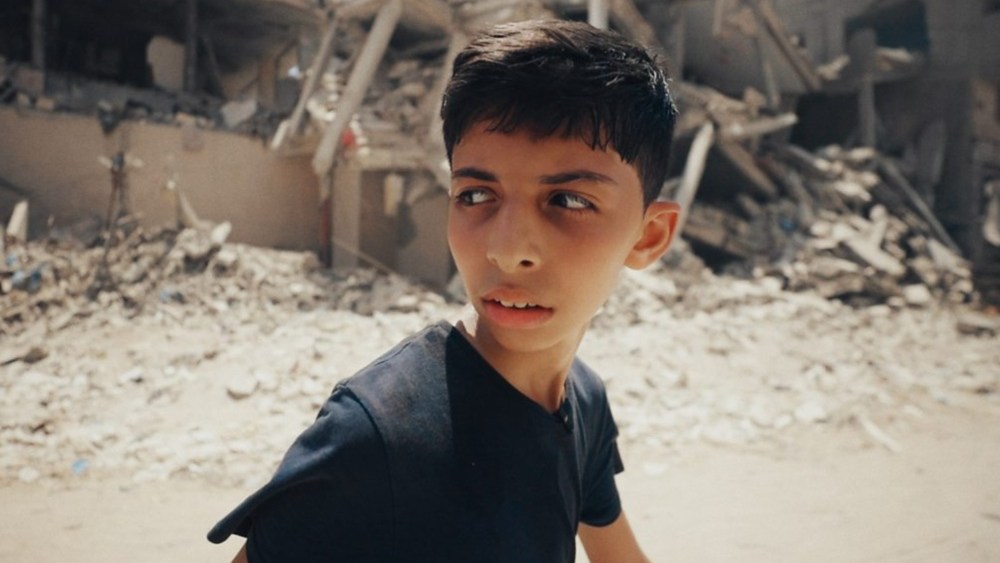British media regulator Ofcom has found that the BBC documentary Gaza: How to Survive a War Zone breached broadcasting rules by “seriously misleading” viewers, ending a months-long investigation that began after the controversial program was removed from BBC iPlayer in February.
The judgment, announced on Friday, found “serious breaches” as set out by Ofcom and will require the BBC to broadcast a statement of Ofcom’s findings on BBC Two at 9pm the same day.
Ofcom’s investigation found that the documentary’s failure to reveal that the 13-year-old narrator’s father held a position in the Hamas-run regime was a serious breach of rules requiring factual programs to provide viewers with accurate information. The narrator, Abdullah, is the son of Ayman al-Yazuri, Hamas’ deputy minister of agriculture.
“This means that the audience did not have important information that was relevant to their assessment of the narrator and the information he provided,” Ofcom said in its findings.
The regulator highlighted the seriousness of the breach, noting that trust is the basis of the broadcaster-audience relationship, especially for a public broadcaster like the BBC. “This failure had the potential to undermine the extremely high levels of audience trust in the BBC’s factual programming on the Israel-Gaza war,” Ofcom said.
A BBC spokesperson told Variety: “Ofcom’s judgment is in line with Peter Johnston’s finding that there were serious deficiencies in the documentary in relation to the BBC’s editorial guidelines for accuracy, which reflect Rule 2.2 of Ofcom’s Broadcasting Code. We apologize for this and fully accept Ofcom’s decision. We will comply with the sanction once dates and wording are confirmed.”
The investigation was launched in July after Ofcom looked into the BBC’s own internal reviews and concluded the program breached the company’s editorial guidelines on accuracy. Ofcom also considered 20 complaints from viewers who had completed the ‘BBC First’ process, a necessary first step before the regulator could intervene.
The documentary, produced by independent company Hoyo Films, was broadcast on BBC Two and BBC iPlayer in February, but was removed from streaming platforms five days later amid growing questions about the poster’s background.
An internal BBC investigation (conducted by Peter Johnston, director of editorial complaints and reviews) found that three members of Hoyo Films knew about the narrator’s father’s position when the program first aired, but that no one at the BBC knew this information at the time. The review found that Hoyo Films did not intentionally mislead the company, but concluded that the majority of the blame lies with the production company.
Importantly, the BBC’s review found no other breaches of editorial guidelines, including impartiality, and no evidence that outside interests had “inappropriately influenced the program” or that the narrator’s father or family influenced the content of the program.
BBC Director-General Tim Davie apologized in July after the findings of an internal investigation were published. “Peter Johnston’s report identifies serious flaws in the accuracy of this documentary,” Davie said at the time. “We thank him for his thorough work and regret this failure.”
Following the review, the broadcaster introduced new editorial safeguards, including increased oversight of narrators on contested current affairs programs, increased editorial control through “first gate” and “final gate” approval processes, and the creation of a new director role for long-form news content. The BBC has confirmed that it has no current or future plans to sign a deal with Hoyo Films.
The controversy attracted significant political attention, with British Culture Secretary Lisa Nandy questioning why no disciplinary action had been taken against BBC staff. The incident also divided public opinion, with more than 500 public figures signing an open letter objecting to what they saw as a politicized backlash to the documentary, while other groups criticized the BBC’s coverage of Gaza more broadly.
BBC chairman Sameer Shah and Mr Davey appeared before the Culture, Media and Sport Committee in September to answer questions about documentaries and other editorial matters.

